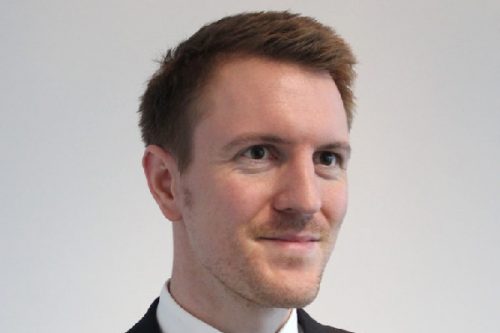Resilience is key for ambitious SMEs

Ambitious SMEs are continuing to press ahead with their plans, although with a key eye on ensuring they have built in resilience to deal with any economic headwinds.
Having a workforce with the right skills are crucial to this resilience, but funding the investment required can prove tricky, a round table discussion hosted by accountancy firm Friend Partnership heard.
“We’re doing very well and growing but that is in a very uncertain market,” said Rowan Crozier, chief executive of manufacturer Brandauer.
“There is a slight concern in the back of my head the bubble is going to burst, but I’m not sure when or why.

About 10 of Brandauer’s 70-strong workforce are apprentices and while there are many examples of good practice from businesses and clusters, such as the Midlands Assembly Network, Crozier doesn’t think fixing the skills gap is something “we are doing as a nation”.
Mark Scotter, corporate finance director at Friend, suggested that getting financial support for staff that can drive growth is very difficult.
“There’s a willingness to lend, it’s just what form does it take?,” he said. “If you want to buy an asset there are a multitude of ways of financing that quite cheaply.
“But the cash that is required for people – they are not seen as an asset, even though they are from our perspective – it is very difficult to fund those, as you are doing that from cashflow.”
One option is grant funding, which Hilary Campton has used for her Nottingham marketing consultancy V Formation to take on two graduates whose first year is fully funded.
She said: “It’s a bit of a geographic lottery but near Nottingham there is a real push in the digital sector so there is quite a lot of grant funding – not grant funding that is going to necessarily transform the business, but that can actually help.
“We have just taken on two brilliant graduates, grant funded by Nottingham Trent University, because they have got access to the EU pot. That was a very quick and easy process.”

Sam Hufton, M3
“For us as a sector the most important thing for us is people, because people are going to help us create great marketing campaigns and get great results for the clients,” he said.
“They are not looking to help you employ people, it’s more that you have to spend money, and perhaps more than you were planning to, just to get 50% back.
“You end up asking if it’s really worth it and does it help you as a business?”
The time it takes for grant funding applications to be created and assessed can be a problem, particularly for small businesses, said Tony Sartorius, chairman of manufacturer Alucast.
“The grant side was there to help businesses expand, create jobs to improve the local and UK economy, and certainly my experience has been that that takes too long,” he said.
“When a small business wants to expand and opportunities come along, you have to react quickly – do the deal within a month – otherwise it falls over.
“If it’s going to take six months or nine months of somebody poring over your figures, at a LEP or somewhere like that, it’s crazy.”
The business owners around the table felt that decision-making in general was taking longer than it used to, or ought to, take.
But Scott Peters, director of corporate and structured finance at Yorkshire Bank, has also seen companies’ decision-making slow down as they consider their options more carefully on strategic investments.
He said: “The interesting thing to see is that those big decisions around acquisitions, around big capital projects, are taking longer to come through. A lot of advisors are saying deals or transactions that would normally have taken two or three months now seem to be taking four, five or six months.”
He is also seeing businesses spreading the risk on spending.
“There’s still a lot of activity going on and I think what we see instead is rather than making one big, say, acquisition or capital project, instead investing in lots of smaller projects,” he said.
Balancing risk is important as businesses look to protect themselves from a dip in any particular sector as well as secure future revenues.
Andy Dawson, director of Birmingham-based change consultancy Curium Solutions, said: “We’re trying to develop longer-term partnerships with our customers. Traditional consultancy is project, project, project. We want long-term relationships, long-term relationships, and long-term relationships, so we are putting a lot of effort into that.
“We’re lucky, our portfolio is quite diverse in terms of sectors – public, private equity-backed, big plcs, law firms. That balance in your portfolio is important. It’s not as easy for everyone, I appreciate that, but consciously just trying to make sure that we limit our exposure to one key client.
“That pragmatic approach to your portfolio, I think will be very important in the next 18 to 24 months.”
Brandauer’s Crozier agrees, with the manufacturer carefully monitoring how reliant it is on particular areas.
“90% of our turnover is from about 12 companies operating in 10 sectors,” he said. “We’re all about spreading the risk and we try to not let any geographic region get any bigger than 40%. It requires constant adjustment and that’s got us through 150 years of trading.”









